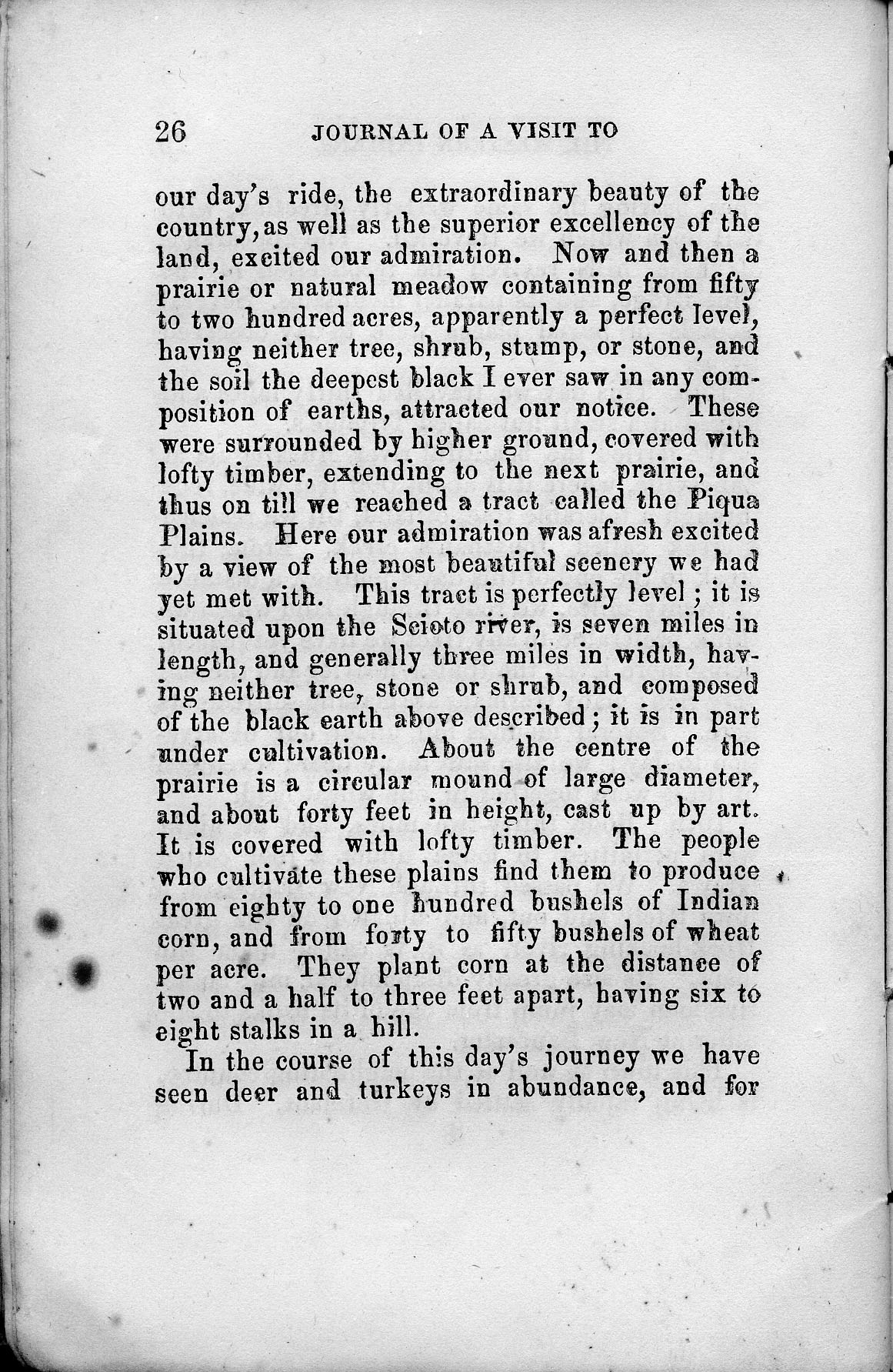our day's ride, the extraordinary beauty of
the
country, as well as the superior excellency of the
land, excited
our admiration. Now and then a
prairie or natural meadow containing from
fifty
to two hundred acres, apparently a perfect level,
having neither
tree, shrub, stump, or stone, and
the soil the deepest black I ever saw in
any com-
position of earths, attracted our notice. These
were
surrounded by higher ground, covered with
lofty timber, extending to the
next prairie, and
thus on till we reached a tract called the Piqua
Plains. Here our admiration was afresh
excited
by a view of the most beautiful scenery we had
yet met with.
This tract is perfectly level; it is
situated upon the Scioto river, is seven miles in
length, and
generally three miles in width, hav-
ing neither tree, stone or shrub, and
composed
of the black earth above described; it is in part
under
cultivation. About the centre of the
prairie is a circular mound of large
diameter,
and about forty feet in height, cast up by art.
It is
covered with lofty timber. The people
who cultivate these plains find them
to produce
from eighty to one hundred bushels of Indian
corn, and from
forty to fifty bushels of Indian
corn, and from forty to fifty bushels of
wheat
per acre. They plant corn at the distance of
two and a half to
three feet apart, having six to
eight stalks in a hill.
In the course of this day's journey we have
seen deer and turkeys in
abundance, and for

